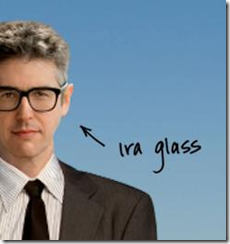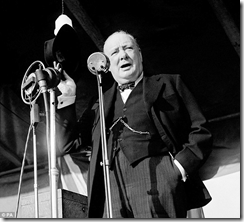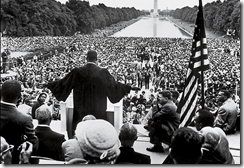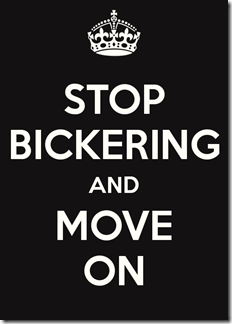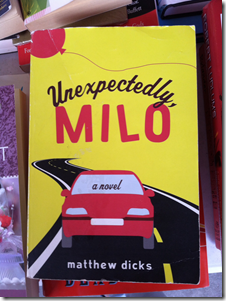Matthew Dicks's Blog, page 399
May 22, 2014
I am happily clueless about many things. It seems to make people very angry.
More than a week after Jill Abramson’s firing as executive of the New York Times, This American Life’s host Ira Glass still hadn’t heard the news.
This is surprising. The story of Abramson’s firing was covered by many media outlets for many, many reasons.
I’ve been reading and listening to news about it all week.
Glass’s response:
I hate reading media news so I actively sort of — I’m not interested in someone getting fired. No disrespect to people that are, but I literally had no idea who she was, or that she got fired until this moment.
I loved this response.
Like Glass, I often wall myself off from certain aspects of the news that I am not interested in.
For example, I know that there was a fight in an elevator recently between two famous people (Beyoncé might have been one of them), but I know nothing else of the incident. I’ve seen plenty of tweets and heard plenty of jokes alluding to the incident, but I have yet to uncover the details of this story, because I just don’t care.
Yesterday, someone questioned my ignorance of this matter.
“Oh, c’mon. You’re telling me you have know idea what happened? You never saw the video?”
I explained that I knew that there was a fight in an elevator between two famous people, and that one may have been Beyoncé, but that was it. Sorry.
In fact, how would I know?
I don’t watch any television news. I acquire all of my news via Twitter and podcasts, clicking and listening to only what headlines interest me.
I haven’t spent time with anyone who has discussed the incident in detail.
I’m not sure if my wife is even aware of this incident. If she is, she hasn’t mentioned it to me.
In order to find out what happened in that elevator, I would have to actively seek out the information.
I chose not to.
I experienced the same inexplicably angry doubt when I told someone that I couldn’t pick a Kardashian out of a lineup if you paid me.
I still can’t.
Unless I watch their TV show (which I’m not sure even exists anymore) or read a People magazine, how would I ever know what any of the Kardashians look like? I’m not even sure why they are so famous, or how many of them there are.
If I wanted to, I could search online for an image of the Kardashian clan and include a photo of them below this text, but like Ira Glass, I don’t waste time on things that don’t interest me. This is not to say that being interested in the Kardashians is a bad thing.
How would I know?
I don’t question or doubt or become inexplicably angry at people who don’t know who George Saunders or Vince Wilfork or Doyle Brunson are. Unless you are interested in literature, football or poker, why would you?
So of course I don’t know who possibly-Beyoncé fought in an elevator last week? Why would I care?
Honestly, why would anyone care about some fight between a possible pop star and someone else (maybe the elevator operator?) in an elevator, but asking a question like that would mean that I am judging people for their personal interests.
I try to only do that in my head.
SportsCenter anchor? No big deal. Actor in a 30 second commercial? AWE INSPIRING.
My friend, Bram Weinstein, is an ESPN anchor. When I first met him, I stood in awe of his occupation and talent.
This is understandable. There was a time in my life when I wore a SportsCenter hat like others wear hats denoting their favorite sports teams.
I was a SportsCenter junkie.
But over the years, as I’ve gotten to know Bram better, the celebrity-status that I once assigned to the SportsCenter anchor has begun to wane.
I’ve come to realize that despite his occupation, he’s just Bram. Sure, he’s excellent at his job, and yes, he has the opportunity to spend time with the greatest athletes in the world.
But I’ve also seen Bram eat birthday cake. Change a diaper. Shank a tee shot. Play princess with his daughter. Wash the dishes. Dance with his son in his arms.
Sadly, the bloom is off the rose when it comes to ESPN anchors. It turns out that they are just regular people.
The only exception to this rule is when Bram does a “This is SportsCenter” commercial. His second commercial aired this week, and for at least a while, he has once again ascended to celebrity status in my mind.
I’ve been watching these commercials for years. Writing and direction my own versions of these commercials in my head. Dreaming of the day when I could make a “This is SportsCenter” commercial of my own.
To think that Bram is immortalized in another one of these iconic advertisements is amazing. Unbelievable. Awe inspiring.
At least for now.
May 21, 2014
Deathbed regrets revisited 2014
Three years ago, in response to a piece listing the most frequent death bed regrets of the dying, I listed what I thought would be my most likely death bed regrets.
Two years later, I revised the list, removing “I did not get into enough fist fights” from the list after reading about the number of unintentional deaths resulting from fist fights.
There were:
I did not travel enough.
I never pole vaulted again after high school.
I did not spend enough time with Clara.
I started publishing novels too late in life and did not have a chance to tell all my stories.
One year later, the list holds up surprisingly well.
Unfortunately well.
I have still not traveled nearly enough.
I have yet to pole vault (though I may do so in the near future).
I never feel like I spend enough time with Clara.
I still have a pile of story ideas clamoring for a place on the page.
In terms of revising the list, I’ll have to add Charlie to item #3. Just as I never feel like I spend enough time with Clara, I also feel like I don’t spend enough time with Charlie.
I’m also adding a new item to the list, the first since I made this list back in 2011:
I never made enough of an effort to know my father.
Since my parents divorce when I was seven years-old, my father and I have had an on-again, off-again relationship.
Mostly off-again.
There have been long stretches of time when we did not communicate at all. My father did not meet my daughter until she was almost four years-old. Most recently, Dad and I have begun to write letters to each other in an effort to get to know each other better. It’s been good.
We try to see each other on holidays whenever possible.
He’s finally met his grandchildren.
It’s still hard. We don’t know each other very well. He won’t come to my home in Connecticut to visit. He works a great deal, so finding time to see him is difficult. I don’t always feel like he is trying very hard to know me and my family, and that makes it even more difficult for me.
Nevertheless, I could be trying harder.
Someday, my father will be gone. When that happens, I know I will regret the lost time and missed opportunities.
Thus my new list of anticipated death bed regrets:
I did not travel enough.
I never pole vaulted again after high school.
I did not spend enough time with Clara and Charlie.
I started publishing novels too late in life and did not have a chance to tell all my stories.
I never made enough of an effort to know my father.
The good news is that I still have no intention of ever dying, so I’ll never find myself on my death bed.
May 20, 2014
The brief but surprising history of Uggs
A student recently asked me if Uggs were invented in colonial times.
Good thing we started our colonial research recently.
In researching the origins of Uggs, I found some interesting bits of information.
Ugg boots originated in Australia and were originally designed solely for warmth. They were most often worn by Australian surfers during the 1960s who needed something warm to wear after emerging from the ocean.
Their name is derived from the fact that they are ugly, or at least were perceived as ugly when first invented.
They still are ugly, of course, but I try not to criticize another person’s choice of clothing because I am not an infantile scumbag.
After movie theatres in Sydney banned ugg boots (the name not yet trademarked) and ripped jeans in the late 1960s, the footwear became popular in the youth market as a sign of rebellion.
Making something illegal is often the best way to make it even more popular (a lesson that conservatives don’t seem to ever understand).
In the 1970s, the boots were introduced to the surf culture of the United Kingdom and the United States by local surfers returning from surfing competitions in Australia.
Then in the late 1990s, Uggs became a fashion statement in America, mostly because a few women who pretend to be other women decided that they wanted to keep their feet warm by wearing Uggs, and Uggs were mistaken by women who want to be other women as fashion forward.
May 19, 2014
Small boy. Big words. Enormous inspiration.
There have been many inspirational speeches throughout history.
Knute Rockne’s “One for the Gipper” speech.
The Saint Crispin’s Day speech from Shakespeare’s Henry V (which sounds surprisingly like the speech that the President gives before the final battle against the aliens in Independence Day).
Winston Churchill’s address to the House of Commons following the evacuation at Dunkirk.
Martin Luther King’s “I Have a Dream.”
And now this. Unnamed boy’s speech upon learning to ride a bicycle:
The kid is a player.
It’s annoying to see a kid a third or fourth of my age with better moves than I have ever had.
Your browser does not support iframes.
May 18, 2014
Students can do amazing things when they want to annoy their teacher.
I have forbidden two students in my class from bickering, because it makes me crazy.
Last week I hear singing coming from the general vicinity of the normally bickering students. I listen closely. It’s the two bickering students, taking turns singing what sounds to be an improvised song of sorts.
“What are you doing?” I ask.
“Singing insults at each other,” one says.
“Why?” I ask.
“You told us not to bicker, so we decided to sing at each other when we’re mad. It’s not technically bickering.”
The two were smiling from ear-to-ear, pleased with themselves for this clever circumvention of my rule.
Best of all, these two constantly bickering students put their heads together and devised and executed a plan specifically designed to annoy me.
Naturally, I forbid them from signing insults at each other, but not before taking pride in their ingenuity and ability to come together to defeat their common enemy.
May 17, 2014
Speak Up storyteller: Cara Paiuk
Our next Speak Up storytelling event is TONIGHT at Real Art Ways in Hartford. Doors open at 7:00 PM. The show begins promptly at 8:00 PM.
There are still a few tickets available, so if you’re looking for something to do tonight, join us for a night of storytelling. Tickets available here.
This week we have been introducing the storytellers who you will be hearing from tonight. Hope to see you there!_______________________________
Cara Paiuk grew up in Canada where she had a Candy Crush — dreams of Jolly Ranchers and 100 Grand bars led her to move to the US. She left corporate America a few years ago to pursue more creative endeavors. Cara has since been published on The NY Times, Huffington Post, CT-Moms, Kveller and many others. Her obsession with photography is her new endeavor and she also runs a food company (nuttycow.com) with her husband. If that doesn’t give her enough to talk about, ask about her three-year-old son and twin baby daughters and she will never shut up. Cara is doing her part to keep redheads from going extinct; she and her husband are both gingers and together they have three of the reddest redhead children you’ll ever see.
How to Stop a Wedding: Much better advice than what Slate had to offer.
Slate recently published a piece advising readers on how to stop a wedding. The editors of Slate loved this piece, declaring it on Twitter to be one of the most popular articles ever amongst Slate staffers.
The advice is decent, albeit a little obvious.
“Think about why you want to break up the wedding.”
“Approach the bride or groom several days or weeks before the wedding.”
“Organize your thoughts.”
“Be graceful.”
I don’t exactly think “Be graceful” is the kind of advice that people are looking for when trying to stop a wedding.
Not exactly helpful.
And what were the alternatives to this advice?
Don’t give any consideration to the reasons for wanting to break up the wedding. Just g with your gut. Enter the conversation as mentally disorganized as possible. Wait until about 15 minutes before the ceremony and be as rude as possible.
See what I mean? I hardly think that the advice that Slate is offering is groundbreaking.
In my life, I have attempted to stop two weddings. Both times, I used the same strategy, and and both times, my attempts failed. This may make you wonder why I am qualified to offer advice on this topic.
Perhaps I am not.
But two things:
Slate makes no claims that the author of this piece was ever successful either, so I am at least as qualified as the author of this piece (which is actually a collection of anonymous WikiHow contributors).
Despite my attempts to stop the weddings, I remained close friends with both brides. After each subsequent divorce (I was at least correct in my prediction about the future of these marriages), both brides acknowledged my attempt to save them from disaster and thanked me.
I didn’t stop the wedding, but my attempts did not damage my friendships with these women.
Slate also offers advice on how to stop a wedding in process. I think this is stupid. If you haven’t tried to stop the wedding by the time the actual ceremony begins, then you need to keep your mouth shut. There are too many other people invested in a wedding day for you to ruin it by your inability to speak up beforehand. And in the event that you are wrong and the marriage lasts (which is entirely possible), you will have placed an irreparable black mark on the couple’s special day.
Divorce is a simple process these days, especially when there are no kids in the equation. Wait a month or two and then check in on the party in question. Inquire about the status of the marriage. Ascertain your friend’s level of happiness. Attempt to break it up then if necessary.
In both of my cases, the person who I was encouraging to stop the wedding was also a woman who I had once dated. In one case, this had amounted to a single date. In the other, we dated exclusively for about four months. I remained friends with both women after our romantic relationship ended. I attempted to stop these weddings because their future husbands were not good men. I had no interest in resuming a romantic relationship with either woman.
There were no ulterior motives.
My advice to stopping a wedding is simple:
If your intention is to stop a wedding in order to win someone back or win someone over, don’t. If the person in question is happy in his or her relationship, you have no right to open your mouth. Every day, men and women get married, and every day, there are those who wish that they were standing beside the bride or groom instead. Love is not always reciprocal. In fact, it’s rarely reciprocal.
Deal with it.
If you are attempting to stop the wedding because you believe that the marriage is doomed, either because it’s a bad match, or the person in question is settling, or the future spouse is not a good person, then proceed with the following steps:
Check with one or more of the person’s closest friends before proceeding. Do not attempt to stop a wedding without obtaining agreement from at least one other knowledgeable, unbiased person. We all make mistakes. This is not the moment to be wrong.
Meet the person alone. Even if the person’s six closest friends agree that the wedding should be stopped, no one likes to be ambushed. No one likes to be outnumbered. Enter the conversation solo. Better to allow the friends and family in agreement to be waiting in the wings, ready to affirm your opinion once the person has been given time to process your words.
Choose a setting that allows you to leave immediately if necessary and permits the betrothed the privacy that he or she may require. This is not the time to meet your friend for dinner at a restaurant. You need to be able to dispense with your advice and exit if that is what the person desires. This will not be an easy conversation. Be prepared to eject.
Be direct. Explain in clear and uncertain terms why the wedding should be stopped. Be sure to have specific examples to support your concerns.
Tell the person that you are not the only one who thinks this way. Offer names of others in agreement. Encourage the person to seek out their counsel as well.
Offer to assist in the cessation of the wedding. Explain that you are willing to do whatever is necessary to make it possible. You will call caterers. Meet with photographers. Negotiate the return of deposits. Even stand by his or her side when the news is broken to the fiancée.
Assure the person that people call off weddings all the time. If you have a specific example of a mutual friend who did so, use it. Suggest that he or she consult with this person.
Be prepared for significant turmoil in your friendship, including the possible end of your friendship. This could happen. As I’ve said many times, the easy thing and the right thing are rarely the same thing.
Last month, my wife and I ran into one of the women whose marriage has ended. She told us how happy she was that her divorce was nearly finalized. It was the first time that I had seen her since the dissolution of her marriage, so I couldn’t help myself.
“You know,” I said. “I told you not to marry that guy.”
My wife punched me in the arm (as she is wont to do) and told me that I was a jerk for saying something like that.
“No,” the woman said. “Matt was right. He told me not to marry [that guy], so he has a right to say ‘I told you so.’ No one else warned me like he did.”
It’s true that I didn’t stop the wedding. My advice failed to yield the desired results. But stopping a wedding is hard. Telling someone not to marry the person who he or she loves is hard.
My record is 0-2, but I stand by my advice.
It’s at least a hell of a lot better than what Slate had to offer.
May 16, 2014
Second-hand Milo
Once you publish a book, you never know where it will go.
A friend found a copy of my second novel, Unexpectedly, Milo, in a second hand store last week.
I can’t help but wonder about it’s journey from bookstore to secondhand store.
Where was it originally bought?
How was it chosen? Did a kindly bookseller hand sell it a customer? Did someone read a review of the book in the Times or the Wall Street Journal and decide to give it a shot? Was it chosen on a whim?
Did the original owner read it, love it, and decide to pass it on?
Was it given to the original owner as a gift and sent to the second-hand store unread?
Did the original owner not like the book? Maybe only read half of Milo’s story before dumping it into his or her secondhand pile amongst tea cozies and superfluous serving spoons?
A person once emailed me, telling me that she had found a signed copy of my book on a shelf in an ocean side bed-and-breakfast. She loved the book and went on to read my other two. We still exchange occasional emails today.
It’s a shame that books can’t reveal the secrets behind their travels. It’s a shame that they don’t keep a record of how many times they have been read and by whom. It’s a glorious thing to see your story travel around the world to people and places never before imagined, but it would be nice if they would occasionally call or send me a text message telling me about their most recent adventures.

